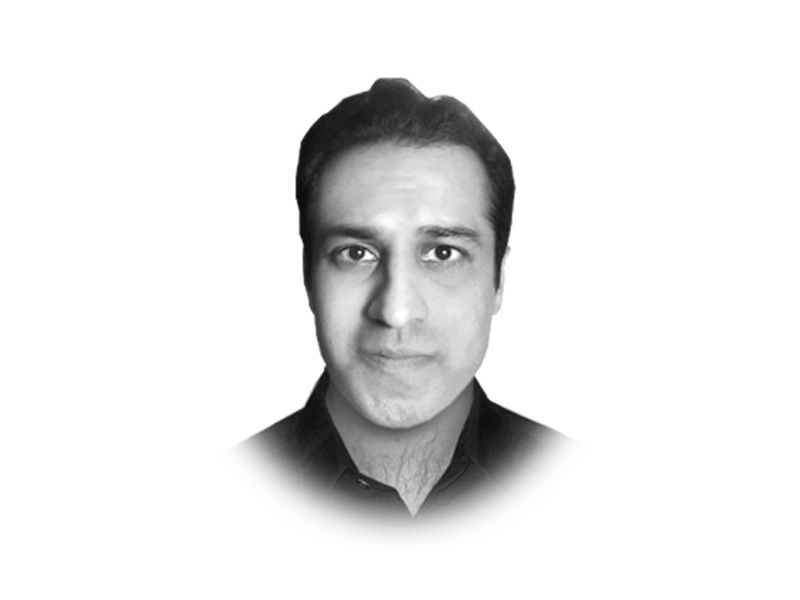
Prime Minister Nawaz Sharif has been in Karachi this week to bring political and religious leaders together to forge a consensus in favour of a targeted operation against the city’s violent criminal and political enterprises. Mr Sharif’s efforts have been admirable. He has been keen to work with both Sindh Governor Ishratul Ebad and Sindh Chief Minister Qaim Ali Shah, keeping both the Muttahida Qaumi Movement (MQM) and the Pakistan Peoples Party (PPP) on board. But Karachi is a long way from Lahore, let alone Islamabad. The distance is amplified by the Eighteenth Amendment, which has devolved more powers to the provinces. The core of Karachi’s problems are political. And those political disputes will have to be resolved in the Sindh Assembly, where Mr Sharif’s party has a marginal presence. It is difficult to imagine the prime minister achieving a breakthrough on the Karachi violence issue when the main disputants -— the MQM, the PPP, and the Awami National Party (ANP) — have failed to do so despite being part of the federal and Sindh coalition governments for the past five years. Mr Sharif cannot impose a political solution in Karachi. He cannot offer the ANP, the MQM and the PPP what they could not and would not do for themselves.
Mr Sharif also cannot impose a political solution in Afghanistan, the future of which is dreary at best. The policy of ‘Afghanisation’ has produced an alarming rise in the deaths of Afghan national security personnel — a rate that the Nato commander in Afghanistan Joseph Dunford has called “unsustainable”. Since late last year, the attrition rate of Afghan forces has exceeded its recruitment rate. With the death toll mounting and the attacks of the Afghan Taliban intensifying this summer, the Afghan Army and national police will be handicapped in terms of both raw manpower and skilled, trained personnel. The head of the Afghan National Police’s special forces has fled the country. Dozens of Afghan diplomats have claimed asylum abroad or are opting to earn big money in Washington as consultants, though most have only a handful of years of diplomatic service.
Mr Sharif cannot make Afghans invest in their country. He cannot prevent Karzai from interfering in the election process, by lobbying in favour of a preferred candidate or declaring emergency and postponing the process. He cannot prevent the Afghan elections from sharpening the ethnic divide in Afghanistan, which could become a vote of Pashtun versus non-Pashtun. He will not be able to prevent ethnic strife from emerging in northern areas like Kunduz, which has a strong Pashtun minority. And he can do little to prevent the tens of thousands of Afghan refugees from fleeing to Pakistan in 2014, which the United Nations suggests is a possibility. In the absence of a political settlement with the Afghan Taliban, the Afghan refugees in Pakistan are unlikely to return to their homeland in the coming years. The conflict that brought them to Fata, Peshawar, Islamabad and Karachi will continue. The Pakistani insurgency that feeds off the war there will also likely go on. And there is really little Mr Sharif can do about it.
Nawaz Sharif may have been elected prime minister in June, but on many accounts, he is a man with his hands tied — shackled by predatory actors thriving on conflict and unable to imagine the dividends of peace. In the absence of the mercy of providence or a bold push on the part of Mr Sharif to produce a comprehensive vision of peace, stability and prosperity that all actors can buy into, a great deluge is set to hit.
Published in The Express Tribune, September 5th, 2013.
Like Opinion & Editorial on Facebook, follow @ETOpEd on Twitter to receive all updates on all our daily pieces.
COMMENTS (7)
Comments are moderated and generally will be posted if they are on-topic and not abusive.
For more information, please see our Comments FAQ












Folks, give him a break, he is new to this.
Agree with Arzoo. Wouldn't It better if u restrain your self to the actual topic.
A mishmash of an article which starts well on the subject of Karachi's violence but quickly diverts to the problems in Afghanistan and more than half of the article is then devoted to Afghanistan. Could not make heads or tails out of the article.
It would have made for a better oped had you focused on what can be done rather than what can't be done.
Your article reminds me of old days movies of tragedy king Dilip Kumar and Meena Kumari. Aanso aur aahein.